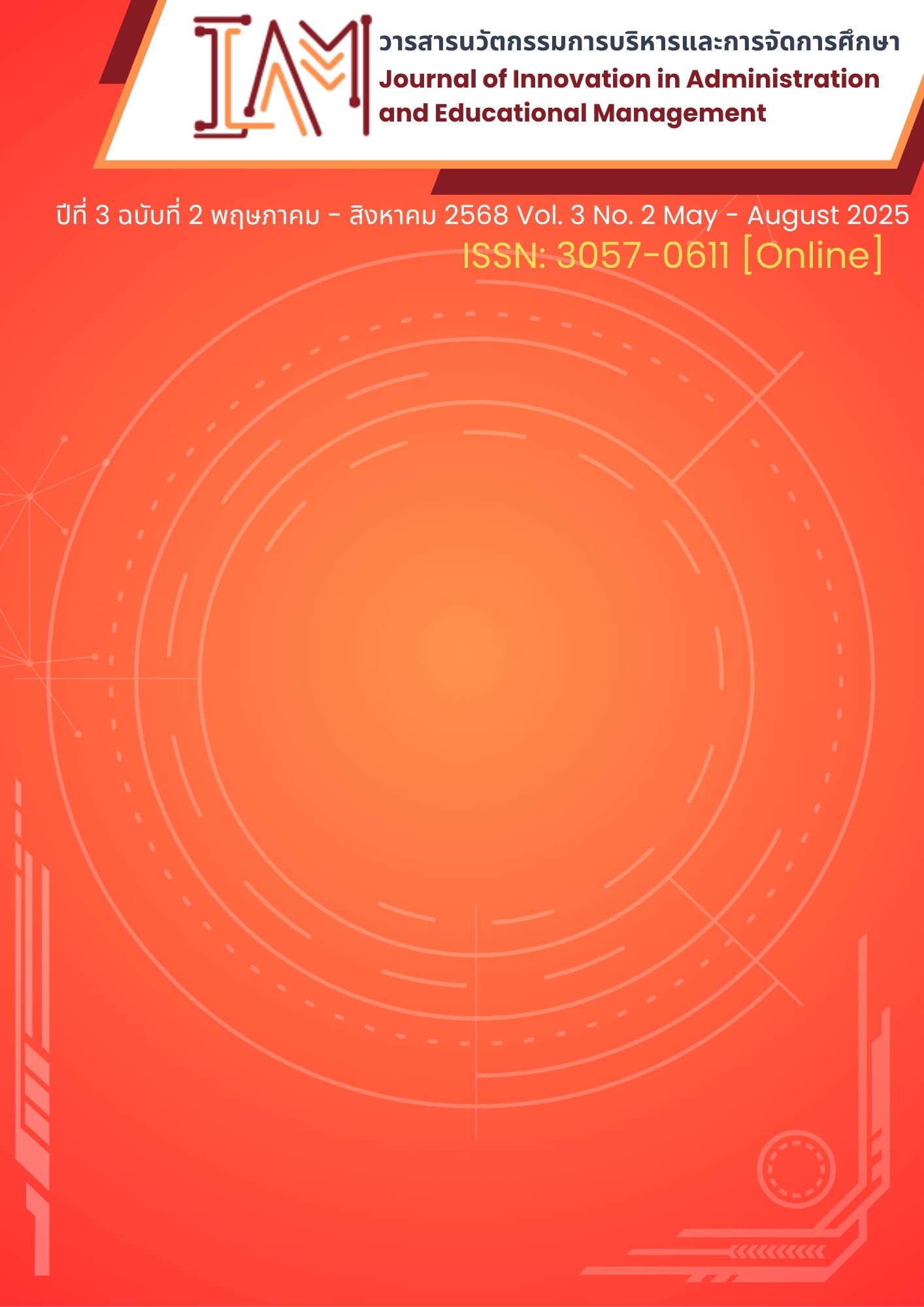Smart Finance: Leveraging Artificial Intelligence for Sustainable and Equitable Budget Management in Schools
คำสำคัญ:
Artificial Intelligence, Budget Management, School Budgeting, Equity, Operational Efficiency, Sustainabilityบทคัดย่อ
This conceptual article examines the integration of artificial intelligence (AI) in school budget management and introduces the AI-Enhanced Budget Cycle Framework (AIBCF) - a six-phase model designed to support financial sustainability, operational efficiency, and equitable resource allocation in educational settings. Drawing on current literature and real-world applications, the paper identifies key AI tools such as machine learning, predictive analytics, and fuzzy logic that enhance each stage of the budgeting process. Key findings include the development of the AIBCF framework, which systematically applies AI technologies to needs assessment, planning, allocation, execution, monitoring, and feedback. Conceptual contributions highlight how AI transforms traditional budgeting from reactive to proactive systems, promoting transparency and data-driven decision-making. This study offers a novel integrative model to guide future research and implementation in educational financial management.
Downloads
เอกสารอ้างอิง
Chen, Y., & Biswas, M. I. (2021). Turning crisis into opportunities: how a firm can enrich its business operations using artificial intelligence and big data during COVID-19. Sustainability, 13(22), 12656.
Guariso, D., Guerrero, O. A., & Castañeda, G. (2023). Automatic SDG budget tagging: Building public financial management capacity through natural language processing. Data & Policy, 5, e31.
Han, X., Xiao, S., Sheng, J., & Zhang, G. (2024). Enhancing efficiency and decision-making in higher education through intelligent commercial integration: Leveraging artificial intelligence. Journal of the Knowledge Economy, 1-37.
Hu, S. (2023). Research on Comprehensive Budget Performance Management in Universities under the Background of Smart Finance. Accounting and Corporate Management, 5(11), 1-6.
Li, Q. (2024). Empowering financial management in educational institutions: A multi-objective decision-making system using intelligent fuzzy logic algorithm and digital marketing. Computer-Aided Design & Applications, 21(S4), 198-210.
Panait, M. P. I., Musat, L., & Cosor, M. (2025). Considerations Regarding the Use of Artificial Intelligence in Financial Management and Accounting in State Pre-University Educational Institutions. Acta Universitatis Danubius. Œconomica, 21(1), 74-94.
Pedro, F., Subosa, M., Rivas, A., & Valverde, P. (2019). Artificial intelligence in education: Challenges and opportunities for sustainable development.
Sherstobitova, A. A., Iskoskov, M. O., Kaziev, V. M., Selivanova, M. A., and Korneeva, E. N. (2020). University financial sustainability assessment models. In Smart Education and e-Learning 2020 (pp. 467-477). Springer Singapore.
Talasila, S. D. (2024). AI-Driven Personal Finance Management: Revolutionizing Budgeting and Financial Planning. International Research Journal of Engineering and Technology, 11(7), 397-400.
Valle-Cruz, D., Fernandez-Cortez, V., & Gil-Garcia, J. R. (2022). From E-budgeting to smart budgeting: Exploring the potential of artificial intelligence in government decision-making for resource allocation. Government Information Quarterly, 39(2), 101644.
Van Hoang, T. (2024). Impact of integrated artificial intelligence and internet of things technologies on smart city transformation. Journal of Technical Education Science, 19(Special Issue 01), 64-73.
Wang, K., Zhao, Y., Gangadhari, R. K., & Li, Z. (2021). Analyzing the adoption challenges of the Internet of things (Iot) and artificial intelligence (ai) for smart cities in china. Sustainability, 13(19), 10983.
Yilmaz, A., Koç, A., Tekin, M. Z., Altun, R., and AYDIN, M. (2025). ARTIFICIAL INTELLIGENCE IN EDUCATIONAL MANAGEMENT: CURRENT RESEARCH. Education and Culture, 10(29), 157-179.
ดาวน์โหลด
เผยแพร่แล้ว
รูปแบบการอ้างอิง
ฉบับ
ประเภทบทความ
สัญญาอนุญาต
ลิขสิทธิ์ (c) 2025 วารสารนวัตกรรมการบริหารและการจัดการศึกษา

อนุญาตภายใต้เงื่อนไข Creative Commons Attribution-NonCommercial-NoDerivatives 4.0 International License.






